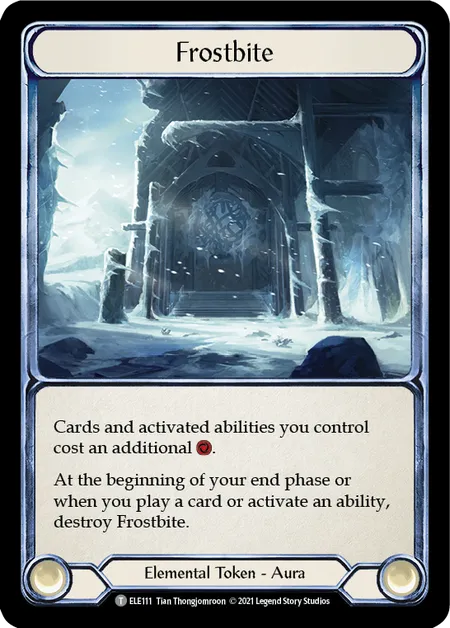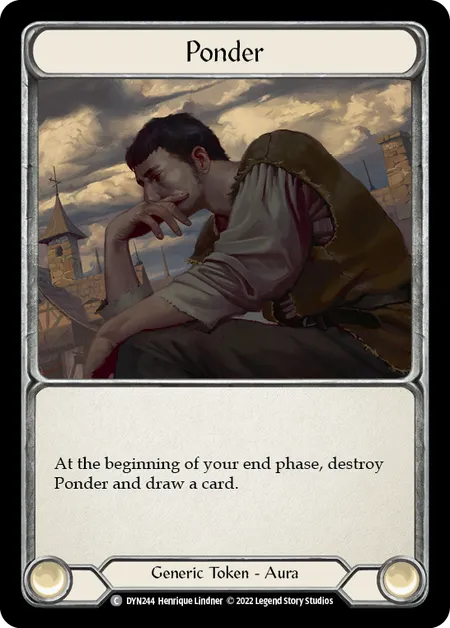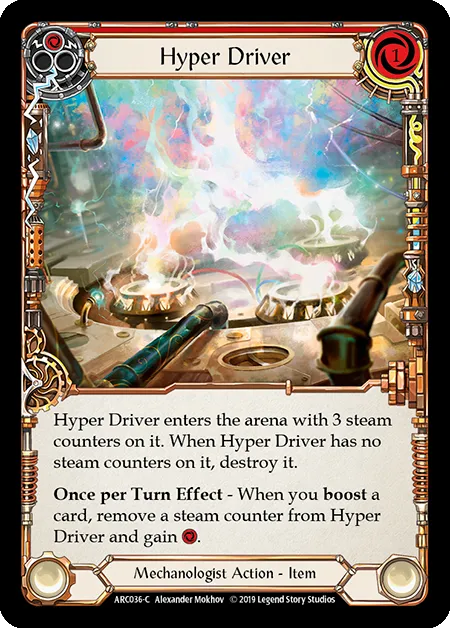After much discussion, both internally and with the community, we have decided to update our policy on how we address missed triggers in official games of Flesh and Blood. What follows is a highlight of the larger discussion at hand and an insight into why we’ve decided to make these changes. These changes only apply to our Missed Trigger policy and do not apply to our more general Game Rule Violation policy (which covers almost all other game rule infractions). The full details of the Policy are available in the updated Procedure and Penalty guide.
TL;DR
- Distinction of beneficial/detrimental triggers has been replaced with evaluating context instead.
- The Missed Trigger procedure now includes partial fixes and rewinds.
- Players are still not responsible for their opponent's triggers.
- Players still share responsibility for all other game rules being followed.

The dichotomy of policy
Before we talk about why we’ve made these changes to our missed trigger procedures, it’s important to understand the context in which they’re being discussed. In short, the majority of FAB policy lies on the spectrum between two equally valid philosophies about player responsibilities. While each of these philosophies has its strengths and weaknesses, it’s clear that neither extreme is ideal and that there is no perfect solution (there never is with policy).
There is no shared responsibility - On one end of the spectrum, players are only responsible for the cards they own and not their opponent’s cards (or some variation). One of the critical issues with this philosophy is entrapment, where players are actually incentivised to have their opponent make a mistake, and then call it out at a specific time to gain maximum advantage. This incentive drives players to be uncooperative with their opponents and to seek a competitive advantage via policy rather than the game itself.
There is a fully shared responsibility - On the other end of the spectrum, players are equally responsible for every card in the game (or some variation). There are two main criticisms of this philosophy: First, players are burdened with additional responsibilities and have to be aware of opponents' cards they may not be familiar with - this is exacerbated by FAB’s game-state complexity, non-rotating formats, and the allowance of multi-language cards in all tournaments. Second, the play experience has historically been poor for players when there is an obligation to point out an opponent’s effects that lead to the player losing the game, or worse, failing to point them out leading to accusations and/or investigations of cheating.
Issues with the previous Missed Trigger policy
Triggers are an integral part of the game mechanics of FAB and they’re one of the many tools that are available to ensure that the game functions as intended (which is why you’ll see them all over the place). In particular, mandatory triggers are essential because there is the expectation that they will definitely occur, and our developers tune the cards and interactions around that expectation.
The previous Missed Trigger policy boils down to the following:
- If the trigger was bad for the player, they get a warning, otherwise, they get a caution.
- If it’s been less than a turn cycle, the opponent chooses whether to put it on the stack, otherwise, nothing happens.
The primary issue we seek to address is how the previous Missed Trigger policy and its procedures created unintentional advantages for players where triggers were forgotten. This created an unintended game or illegal game state where a partial fix or rewind could have provided a more equitable solution for players. Under the current policy, remembering triggers is treated as a game-tested skill - that is, one of the skills you need to be “good” at the game is to remember your own triggers. While optional triggers in FAB are absolutely designed to be a game-tested skill (e.g. Fyendal’s Spring Tunic), mandatory triggers were not designed with this in mind.
In addition, the policy makes a crude distinction between beneficial and detrimental, without taking into account the context of the game. For example, destroying a token you control is considered detrimental, even if the token’s effects are undesirable to control (e.g. Frostbite, Frailty, Inertia.) Tokens created by an opponent under the player’s control can also lead to situations where the player is burdened with being solely responsible for the tokens (or even cards) they may not be familiar with.
Here are some examples of where the previous policy failed to achieve the desired results:
Frostbite (Inertia, Frailty, etc.)
Tyler controls a Frostbite token. At the end of Tyler’s turn, both players forget the trigger to destroy it. During Nic’s turn, Tyler remembers the trigger. The procedure dictates that Nic may choose to either put the trigger on the stack (removing the token) or not (keeping the token around). Realistically, Nic chooses not to, because it is advantageous for them to have Tyler control a Frostbite. This outcome is in conflict with the philosophy that Nic should ultimately be penalized less harshly because they don’t own (and may be less familiar with) the trigger. Ideally, the Frostbite should just be removed from play as a partial fix.
Ponder
Tyler controls a Ponder token. At the end of Tyler’s turn, both players forget the trigger to destroy it. During Nic’s turn, Tyler remembers the trigger. The procedure dictates that Nic may choose to either put the trigger on the stack (giving Tyler a 5-card hand) or not (allowing Tyler to keep the Ponder token around). Both of these options are in conflict with the philosophy of procedures restoring the integrity and equity of the game. Ideally, the Ponder just be removed from play as a partial fix.
Hyper Driver
Tyler controls a Hyper Driver. Tyler boosts a card and removes the last steam counter from their Hyper Driver, and both players forget the trigger to destroy it. Tyler finishes their turn, Nic plays their turn, and it’s back to Tyler’s turn again. Tyler then remembers the trigger, and the procedure dictates that they receive a Warning and no further action is taken. This has led to an unintended game state where the Hyper Driver will continue to exist until destroyed by an external effect (even if Tyler boosts again), whilst still being relevant for beneficial interactions such as Construct Nitro Mechanoid. Ideally, the Hyper Driver should just be removed from play as a partial fix.
The new Missed Trigger policy
In short, we want to reduce the scope of advantage gained from allowing the player and their opponent to miss mandatory triggers, which also reduces the frequency of damaged game states. At the same time, we want to avoid players being responsible for their opponent's triggers. Therefore, we're adjusting the procedure and penalties, but not the responsibility.
The new Missed Trigger policy is available in the updated Procedure and Penalty guide with the release of Dusk till Dawn, 14th July, 2023. Here’s a brief overview:
What is new:
- Cautions or Warnings will be considered based on the context of the game state, as opposed to an arbitrary division of beneficial/detrimental triggers without context.
- Partial fixes (small corrections to the game state) and rewinds (reversing to a previous game state) will be the primary procedures for fixing missed triggers.
- If a judge considers it impossible to use these procedures to reasonably fix a missed trigger, they will leave the state as is.
What is the same:
- The definition of what a trigger is, and what it takes for a trigger to be missed.
- You’re still not required to acknowledge any of your opponent’s triggers, although you may still do so if you wish.
- You’re still not required to acknowledge your own optional triggers. If you don’t acknowledge them, nothing else happens. You're still required to acknowledge your own mandatory triggers.
The new Missed Trigger policy directly addresses the primary issue of advantageous or illegal game states by attempting partial fixes (or rewinds) to ensure that the game rules are followed correctly to produce the correct state. This gives judges the power to ensure that common simple triggers can be addressed neatly and more equitably for both players involved, which is in line with how we handle all other game rule violations. The arbitrary division between beneficial and detrimental triggers has been removed in favour of evaluating the context. This is also in line with how we handle all other game rule violations, and will primarily be addressed with a general philosophy and Judge education, rather than a strict set of criteria. Players are still not responsible for their opponent’s triggers, but there is a reduced incentive for intentionally keeping quiet about an opponent’s missed trigger only to bring it up later because the player no longer has control over the procedure outcome.
We will continue to evaluate the effect that this change has, especially in competitive play, to ensure that the procedure has the intended effect of balancing the game and tournament integrity against the overall player experience. We hope that these changes will have a positive impact on the nationals season as we strive ever more towards our goal of bringing players together in the Flesh and Blood through the common language of playing great games.


